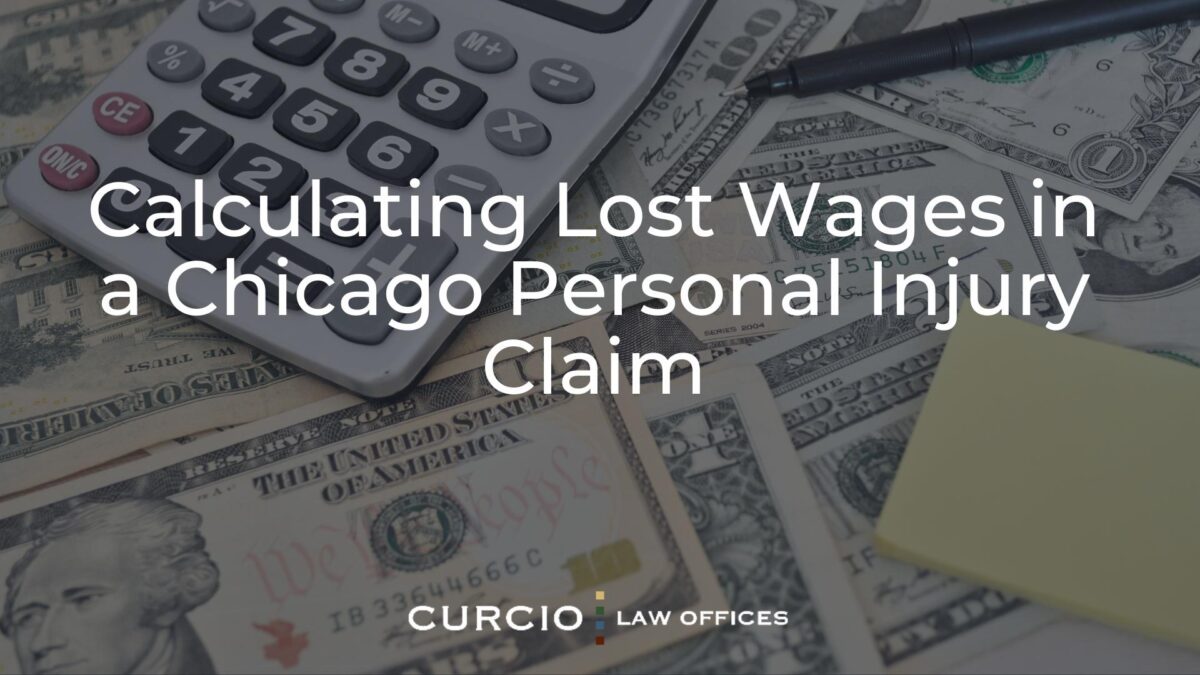For nonfatal injuries sustained, the average number of missed work days is over 11. And, with two-thirds of the population living paycheck to paycheck, this means that for the majority of Americans, missing 11 days of work will cripple finances.
However, personal injury victims have the opportunity to recover lost wages through a personal injury claim. In most injury cases, injured claimants pursue their lost wages, along with other damages, such as property damage, medical bills, and lost earning capacity.
So, calculating lost wages is a key component of determining the total value of a personal injury case. There are a range of variables that must be considered for lost wages.
If you’re a salary employee and missed work for two weeks, then calculating lost wages is pretty straightforward. But what happens when your doctor says that you may never be able to work again? This is where calculations become a more complicated process and when you may want to speak with an experienced personal injury lawyer.
If you’ve been involved in an accident and need help proving lost income and recovering lost wages, Chicago injury lawyers are here to help. Call 312-321-1111 for a free consultation.
What are Lost Wages in Illinois?
Lost wages is the money that you could have earned had you not been involved in an accident. Usually, the term “lost wages” only includes the amount you should have earned from the initial point of the injury until the day you receive compensation for your injuries.
In most cases, injury victims can pursue their lost income because of injuries and work hours missed while receiving medical treatment.
The value of the victim’s lost wages will consider a range of factors including but not limited to:
- Regular wage (hourly wage or salary)
- Lost income opportunities like bonuses, raises and commissions following career trajectory
- Potential overtime pay
- Retirement contributions
- Health benefits
- Company car
- Other company perks
The lost wages in a personal injury case are paid out in addition to other economic damages like medical expenses or property damage.

Calculating Lost Income
Calculate Lost Wages for Employed
The formula for lost compensation is fairly straightforward in some cases.
Lost Wage Formula for Hourly Employee
If you are paid hourly wages, then you’ll calculate the hours you missed and multiply the number of hours you missed by your hourly wage.
So, the formula looks as follows:
Missed hours x Hourly wage = Lost wages
Lost Wage Formula for Salaried Employee
For those earning a yearly salary, the formula for total lost wages is similar to that of an hourly employee. You’ll take your annual salary and divide it by the number of weekday hours you work per year. This gives you your hourly rate of pay.
Most full-time employees work around 2,080 hours per year.
You’ll then take this number and multiply by the number of work hours you missed.
So, the formula looks as follows:
(Annual salary / Annual work hours) x Missed hours = Lost wages
Sick Days and Vacation Days for Employees
Sick days and vacation days are irrelevant in your lost wages claim. If your injury forced you to use those days, you will still pursue damages from the insurance company for those days.
Proving Lost Wages for Employees
You can prove lost wages in a few different ways. First, you need to gather all of the relevant information from your employer, namely the wage verification form. In this form, your employer should calculate lost earnings.
Additionally, previous pay stubs, tax returns, bank statements, business records, etc. can help substantiate your lost income claim. And, if necessary, you can provide a doctor’s note, medical records and hospital documentation to show how long you received medical treatment.
Calculating Lost Wages for Those Who Are Self Employed
If you’re an independent contractor or self employed, determining lost wages is a little more difficult. Unlike lost wages in standard 8-5 jobs, missing work may lead to future income losses from lost clients and lost business opportunities.
If you’re self employed and need to calculate income lost, you must consider both your tangible and intangible costs. If you’re acting as your own boss, more than likely, the salary that you pay yourself will only represent a small fraction of your total lost income. Many business owners have unique pay structures in order to keep their businesses alive.
So, if you’re pursuing an injury claim and need to claim lost income damages, you need to hire an experienced and reputable personal injury lawyer to help you recover compensation.
Apart from the complexity of having lost wages calculated, you’ll also need to argue that the lost income was a direct result of the injury, itself, and not some other outside force.

Lost Earning Capacity
Personal injuries, such as those sustained due to medical malpractice or a car accident, can change your life altogether. After injury victims take property damage, medical bills, lost benefits, and lost wages into account, they’re still left with a significant amount of costs associated with lost earning potential.
If your injuries are significant enough or if they affect your ability to make the same living that you could before the injury, you’ll need to factor in a huge amount of moving variables to accurately determine what your family missed out on financially.
For victims that sustain long term damage, it’s unlikely that they would have remained at the same job throughout the course of their life, especially if they have a variety of workplaces in their employment history.
Also, how does one account for raises, bonuses, and future losses associated with a promotion or new career path, altogether?
The process of calculating lost earning potential is much more difficult than calculating lost wages or income. In some cases, you may need to hire an economist or forensic analyst to testify when arguing these future income losses.
For those who need to calculate lost earning capacity, it is critical that you retain a highly qualified injury attorney, as they can drastically change the course of your claim and amount of your compensation.

Securing Economic Damages in a Chicago Personal Injury Case
At Curcio & Casciato, our injury attorneys have the ability to present an economic model to show what you have lost in terms of future earnings. We can present life expectancy tables, typical earnings of others with the same or similar qualifications and education background as you, and base our recommendation on historical trends and data. Of course, the average insurance company will present a much lower figure.
If you’ve been permanently injured, whether in a car accident, truck accident, by a medical professional, or by any other means that you had no control over, it’s normal to be upset. It’s also normal to worry about your family’s immediate financial situation.
As legal professionals, we have witnessed insurance companies further handicap the lives of victims every day of our careers. We sincerely urge you to reach out to a personal injury attorney before accepting any settlement offer. At Curcio & Casciato, we offer a free consultation with absolutely no obligations attached. We work on a contingency fee basis, so you won’t pay us anything unless your claim is successful.
You have nothing to lose by calling, and calling could change the course of your family’s future! Call us today at 312-321-1111.



